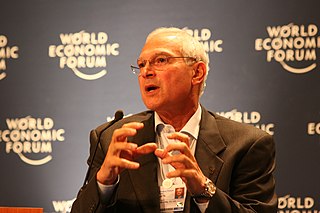A Quote by Brian Schweitzer
Twenty-six states have passed renewable portfolio standards, which simply says somewhere between 15% and 30% of their electricity will come from renewables by such-and-such a year. In Washington, D.C., they haven't done a damn thing.
Related Quotes
So on the demand side [for energy], there have been a variety of policies that globally have been way over $50 billion a year of tax credits, raising the price of electricity through things like renewable portfolio standards, so the total amount of money that's gone into sending a price signal to push up demand versus what would happen without it has been gigantic.
If you look at the New York Times, it says X; if you look at the Washington Post, it says the same thing. And if you turn on any television newscast it's the same thing you already heard, that's research. And that's one of the ways it's done. Authority ends up being imputed simply because of volume. I mean, all of these different news organizations reporting the exact same thing.
Such a strange thing, to hold a six-year-old's hand. Especially a six-year-old you've only just met. A toddler will grab hold of your finger, and someone your own age will clasp on to your whole hand, but with six-year-olds it's something in between, this acknowledgment that they can't be the one to take hold, so you have to do all the holding, folding your hand around theirs, feeling so much bigger and responsible.
There is one thing of which I can assure you. If good performance of the fund is even a minor objective, any portfolio encompassing one hundred stocks (whether the manager is handling one thousand dollars or one billion dollars) is not being operated logically. The addition of the one hundredth stock simply can't reduce the potential variance in portfolio performance sufficiently to compensate for the negative effect its inclusion has on the overall portfolio expectation.
If you're going to buy something which compounds for 30 years at 15% per annum and you pay one 35% tax at the very end, the way that works out is that after taxes, you keep 13.3% per annum. In contrast, if you bought the same investment, but had to pay taxes every year of 35% out of the 15% that you earned, then your return would be 15% minus 35% of 15%-or only 9.75% per year compounded. So the difference there is over 3.5%. And what 3.5% does to the numbers over long holding periods like 30 years is truly eye-opening.
Solar makes electricity expensive for two inherently physical reasons. Sunlight is dilute, requiring 10 to 15 times as much materials and mining, and up to 5,000 times more land, than non-renewables. And sunlight is unreliable, which reduces the value of solar as it becomes a larger part of energy supplies.
Variable but forecastable renewables (wind and solar cells) are very reliable when integrated with each other, existing supplies and demand. For example, three German states were more than 30 percent wind-powered in 2007 - and more than 100 percent in some months. Mostly renewable power generally needs less backup than utilities already bought to combat big coal and nuclear plants' intermittence.
If the prospect of a bad result gets the heart racing - a plane crash, a terrible disease, a loss of 30 percent of your portfolio - most people will take strong steps to avoid it. They will pay too little attention to a comforting thought, which is that worst-case scenarios usually don't come to fruition.


































